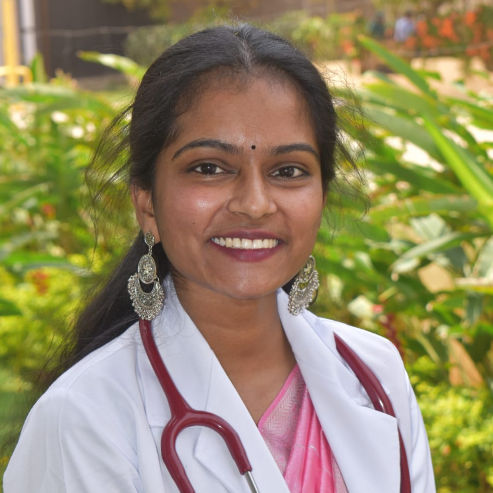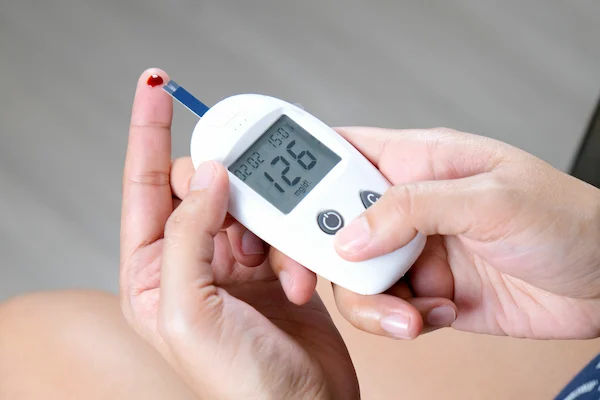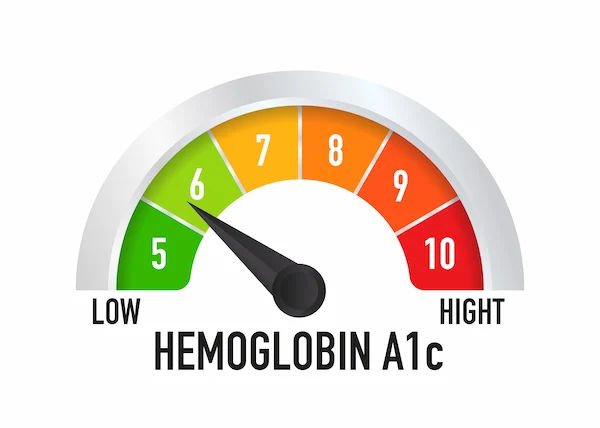Life Style Changes for Diabetic Management
Discover effective lifestyle changes for diabetes management, including diet, exercise, stress control, and healthy habits to maintain stable blood sugar and overall well-being.

Written by Dr. Md Yusuf Shareef
Reviewed by Dr. Shaik Abdul Kalam MD (Physician)
Last updated on 13th Jan, 2026

Introduction
Living with diabetes can be challenging, but the right lifestyle changes can make a big difference in managing your blood sugar levels and overall health. Whether you have type 1 or type 2 diabetes, small, consistent adjustments in your daily routine can help you stay in control and reduce the risk of complications.
In this article, we’ll explore simple yet effective lifestyle changes that can help you manage diabetes better.
Understanding Diabetes and Its Impact
Diabetes is a condition where your body either doesn’t produce enough insulin (type 1) or can’t use it effectively (type 2). This leads to high blood sugar levels, which, if left uncontrolled, can cause serious health problems like heart disease, kidney damage, nerve issues, and vision loss.
The good news? With the right lifestyle choices, you can keep your blood sugar in check and live a healthy, active life.
Consult a Diabetologist for the best advice
Key Lifestyle Changes for Diabetes Management
Here are some important lifestyle changes that can help in managing diabetes effectively:
1. Eat a Balanced, Diabetes-Friendly Diet
What you eat plays a huge role in managing diabetes. A healthy diet helps regulate blood sugar, maintain a healthy weight, and prevent complications.
What to include:
- Fibre-rich foods – Whole grains (oats, brown rice), vegetables, fruits (in moderation), and legumes help slow sugar
absorption. - Lean proteins – Fish, chicken, tofu, and beans keep you full without spiking blood sugar.
- Healthy fats – Nuts, seeds, avocados, and olive oil support heart health.
- Low-glycaemic index (GI) foods – These release sugar slowly (e.g., sweet potatoes, quinoa, berries).
What to limit or avoid:
- Sugary drinks (sodas, fruit juices)
- Refined carbs (white bread, pastries)
- Processed and fried foods
- Excessive salt and sugary snacks
Tip: Try the plate method: Fill half your plate with non-starchy veggies, a quarter with lean protein, and a quarter with whole grains.
2. Stay Active with Regular Exercise
Exercise helps your body use insulin more efficiently and lowers blood sugar levels. It also improves heart health,
reduces stress, and helps with weight management.
Recommended activities:
- Aerobic exercises – Walking, swimming, cycling (30 minutes daily).
- Strength training – Lifting weights or resistance bands (2-3 times a week).
- Flexibility exercises – Yoga or stretching to improve mobility.
Tip: Start slow if you’re new to exercise. Even a 10-minute walk after meals can help lower blood sugar.
3. Maintain a Healthy Weight
If you’re overweight, losing even 5-10% of your body weight can significantly improve insulin sensitivity and blood sugar control.
How to achieve it:
- Combine a balanced diet with regular exercise.
- Avoid crash diets; focus on gradual, sustainable weight loss.
- Track your progress with a food diary or fitness app.
4. Monitor Blood Sugar Regularly
Keeping track of your blood sugar levels helps you understand how food, exercise, and medications affect you.
How to monitor:
- Use a glucometer at home.
- Keep a log of readings to share with your doctor.
- Follow your doctor’s advice on testing frequency.
Tip: If you notice frequent highs or lows, consult your doctor for adjustments in diet or medication.
5. Manage Stress Effectively
Stress raises blood sugar by triggering the release of hormones like cortisol. Learning to manage stress is crucial for diabetes control.
Stress-relief techniques:
- Deep breathing exercises
- Meditation or mindfulness
- Hobbies like gardening, reading, or music
- Getting enough sleep (7-8 hours per night)
6. Quit Smoking and Limit Alcohol
- Smoking worsens diabetes complications (heart disease, nerve damage). Seek help to quit if needed.
- Alcohol can cause blood sugar spikes or drops. If you drink, do so in moderation (1 drink per day for women, 2 for men) and never on an empty stomach.
7. Get Regular Health Check-ups
Diabetes affects multiple organs, so regular screenings are important:
- HbA1c test (every 3-6 months) – Measures average blood sugar.
- Blood pressure & cholesterol checks – To prevent heart disease.
- Eye and foot exams – To detect early signs of complications.
Tip: Book a consultation with a diabetes specialist on Apollo 24|7 for personalised advice and monitoring.
Get Your Health Assessed
Final Thoughts
Managing diabetes is a lifelong journey, but with the right lifestyle changes, you can stay healthy and active. Small, consistent steps like eating well, staying active, and monitoring your blood sugar, can make a big difference.
If you need guidance, don’t hesitate to reach out to healthcare professionals. Apollo 24|7 offers expert consultations and diabetes management programs to support you every step of the way.
Consult a Diabetologist for the best advice
Consult a Diabetologist for the best advice

Dr. Utsa Basu
Diabetologist
14 Years • MBBS , MD
Barasat
Diab-Eat-Ease, Barasat
(75+ Patients)

Dr. Swaroopa Rani
General Physician/ Internal Medicine Specialist
9 Years • MBBS, MD (Internal Medicine)
Bengaluru
Apollo Medical Center, Marathahalli, Bengaluru

Dr. Arif Ahmed
General Physician/ Internal Medicine Specialist
9 Years • MBBS, MD (Genl. Med.)
Kolkata
MCR SUPER SPECIALITY POLY CLINIC & PATHOLOGY, Kolkata

Dr. Arthi S
Family Physician
3 Years • MBBS
Bengaluru
PRESTIGE SHANTHINIKETAN - SOCIETY CLINIC, Bengaluru

Dr Syed Mateen Pasha
General Physician
2 Years • MBBS
Bengaluru
PRESTIGE SHANTHINIKETAN - SOCIETY CLINIC, Bengaluru
Consult a Diabetologist for the best advice

Dr. Utsa Basu
Diabetologist
14 Years • MBBS , MD
Barasat
Diab-Eat-Ease, Barasat
(75+ Patients)

Dr. Swaroopa Rani
General Physician/ Internal Medicine Specialist
9 Years • MBBS, MD (Internal Medicine)
Bengaluru
Apollo Medical Center, Marathahalli, Bengaluru

Dr. Arif Ahmed
General Physician/ Internal Medicine Specialist
9 Years • MBBS, MD (Genl. Med.)
Kolkata
MCR SUPER SPECIALITY POLY CLINIC & PATHOLOGY, Kolkata

Dr. Arthi S
Family Physician
3 Years • MBBS
Bengaluru
PRESTIGE SHANTHINIKETAN - SOCIETY CLINIC, Bengaluru

Dr Syed Mateen Pasha
General Physician
2 Years • MBBS
Bengaluru
PRESTIGE SHANTHINIKETAN - SOCIETY CLINIC, Bengaluru





